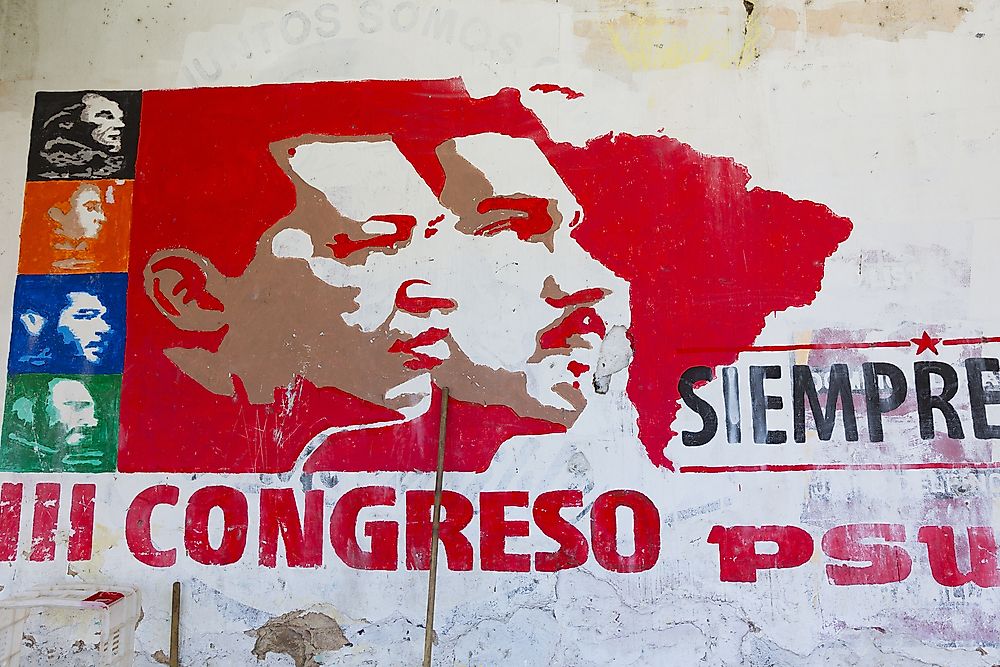What is Populism?

The word populism has been used describe a personality approach to leadership. It is the belief that the will of the ordinary citizen should prevail over that of the privileged elite. The word is adapted from the Latin word "populous" meaning the people and insinuating a strong connection to democracy. It usually combines elements of the left and right opposing issues such as large business and financial interests but also frequently being hostile to established socialist and labor parties. Populism was first used 1890 when the American Populist Movement pitted the Democratic Party and rural populations against the urban Republicans. The word populism was also used in reference to the Russian narodnichestvo movement in the 19th century, which largely comprised self-hating intellects who had a crush on the peasantry.
Populism Around the World
Populism is present in many democratized countries across the globe. In the US, the Bill of Rights and the Declaration of Independence paved way for a democratic political regime that promoted the rise and survival of populist movements. Latin America and Italy have set out state power to defend and empower elite classes by repressing opposition and instigating welfare programs for the minority. In Europe, populism emerged alongside democracy after the First World War, was promoted through repression of the economy, expansion of power colonies, and increased military power. In other countries around the globe, populist movements represent themselves through nationalistic beliefs that have paved way for fascist regimes.
Scope of Populism
Populism can either take the forms of democratic or authoritarian movements. In its most democratic form, populism seeks out to protect the interest of the ordinary citizen while maximizing their power and authority through reforms rather than revolution. In democracy, populism is best explained by the Populist Movement in the US in 1892 when most of the party’s demands, such as progressive taxes, were adopted as laws and constitutional amendments. In the authoritarian form, populism revolves around a charismatic leader who appeals to embody the will of the people by consolidating their personal initiatives. In this personalized form of politics, political parties tend to lose their importance and elections only serve as a confirmation to the leader’s authority rather than to reflect the different allegiances of the people. Such populist politics are seen in Latin America as applied by leaders such as Juan Peron and Hugo Chavez in the 20th century.
Populist movements are spreading from the poor Latin American to the modernized and democratic societies. Declining socio-economic welfare and corruption have combined to promote populist leaders and movements in several European countries and the United States. Other factors that encourage the spread of populism encompass economic capitalism that is known to weaken the supremacy of sovereign states. In addition, an intensified threat from terrorism encourages citizens to doubt the capabilities of liberal civil movements making them seek out culture and religion as potential protectionists against these external adversaries.
Populist Movements versus Populist Power
In today’s globalized system, populism has been known to play two major roles. Firstly, it seeks to denounce social inequalities and condemns the elite in society. Secondly, populism calls for improved national unity for the good of its citizens. By advocating for the ethnic understanding of democracy, populism brings to light the flaws of many democratic models and the underlying social inadequacies. As a political movement, populism is a leech-like representation of democracy where it denounces and challenges any representative arrangements existing in the political system. Although populism is rooted in the language of democracy and the philosophy of the people, it indirectly stretches towards an autonomous rule inclined to the majority, but with major outbursts on minorities.
In power, populism tends to mistake its partial ideologies of democracy for the whole. During elections, populist leaders usually guarantee to represent the discriminated minority in the political system by overthrowing any existing elected oligarchy. However, upon gaining power, these leaders begin to deploy the tools of central government to limit the power of institutions that advocate for democracy. They abandon their party pluralism, limit the divisions of power, suppress the rights of opposition, and other key principles of constitutional democracy. To exercise their power, populist leaders suppress social movements by limiting media freedom and civil autonomies. Even with the promise of instituting reforms to eliminate existing vices in the democratic system, populist leaders cannot instigate any sustainable democratic rules that promote equal representation.
Populism in the 21st century
Cas Mudde political scientists at the University of Georgia defined populism as a thin ideology that sets a framework for a pure people vs the elite, a definition that has become increasingly influential in the 21st century. The thin ideology of populism is attached to social institutions of socialism, racism nationalism, or, anti-imperialism, in order to explain the world and justify specific agendas. For instance, Mr. Wilders, a renowned Dutch secular-nationalist populist in defense of homosexuality in the country demands a crackdown of Islamists by reviling the multicultural elite. Spain’s anarchist-socialist populist party, Podemos, pushes to seize all vacant buildings owned by banks and distribute them to the poor. In Poland, Kaczynski, a religious nationalist populist, pushes Catholics to take over major institutions in the country from the elite secular liberals.
Despite being adopted as an influential mantra, the thin ideology has been criticized by Werner Muller, a political scientist from Princeton University who claims that the definition fails to capture all dimensions of politics. He claims that populists are mainly defined by the claim that they alone represent the people and all other institutions are illegitimate in their roles. For Muller, population is distinctive in the lines of inclusive and exclusive populism. Exclusive populism focuses on shutting out stigmatized groups such as refugees, is more common in European countries while inclusive populism demands that policies be open to stigmatized groups, and is more common in Latin America. Muller concludes that the upside of populism lies in pushing the elites to address the issues they always ignored in order for them to align with the major elements of democracy, which encompass the rights of minorities and the rule of law.











